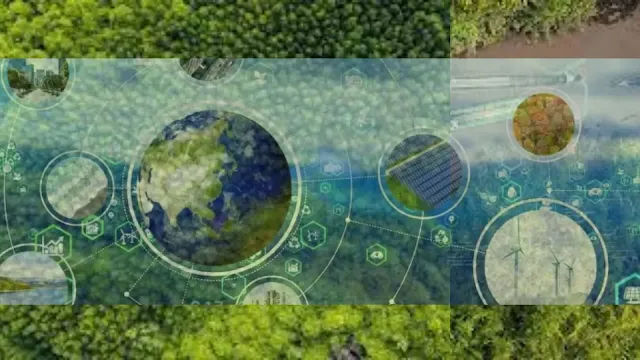Discover the symbiotic relationship between climate change and the free enterprise system. Explore the pivotal role of sustainable businesses in mitigating environmental challenges while thriving within the dynamics of the market. Learn how these environmental businesses drive innovation and pave the way for a greener, more sustainable future.
The Vital Role of Businesses in Tackling Climate Change
Businesses have found themselves at the forefront of a crucial challenge in our rapidly evolving world, where climate change is no longer a looming threat but a pressing reality. It's not just a matter of corporate responsibility; the way businesses respond to climate change could have a major impact on the planet's future. In this article, we'll examine the various ways that companies can promote good change, develop sustainable practices, and take the initiative in the move toward a future that is more environmentally friendly and resilient.
Understanding the Effect:
Businesses' profound impact must first be acknowledged in order to fully understand their significance in the fight against climate change. Through their operations, supply chains, and interactions with customers, businesses of all sizes have a significant impact on the environment. Significant amounts of greenhouse gas emissions and resource depletion are caused by the production, transportation, and disposal of goods and services. Businesses that prioritize sustainability are not only satisfying an expanding demand but also minimizing their ecological footprint as customers become more environmentally conscious.
Sustainability-focused innovation:
Business innovation is one of the most effective ways to combat climate change. By creating eco-friendly technologies, materials, and business practices, progressive companies are revolutionizing entire industries. These innovations, which range from renewable energy sources to biodegradable packaging, not only lessen the negative effects on the environment but also open up new markets and revenue streams. businesses can take the lead in developing solutions that reduce climate impact while fostering economic growth by investing in research and development.
Moving toward a circular economy:
The old "take, make, dispose" economic model is no longer viable. Businesses are starting to realize the potential Of a circular economy, where resources are used for as long as possible, waste is reduced, and recycling is encouraged. Companies can help create a more effective and environmentally friendly system by redesigning product designs, fostering repairability, and promoting reusability. Along with lowering carbon emissions, this transition encourages consumers to engage in sensible consumption habits.
Responsible for the supply chain:
Deep into its supply chain, a company's impact has a long-lasting effect. The suppliers and partners of forward-thinking businesses are being scrutinized more closely and held to higher ethical and environmental standards. Businesses can expand their positive influence and affect positive change beyond their immediate operations by promoting sustainable practices throughout the supply chain. This not only improves the company's reputation but also has a snowball effect that inspires other participants to imitate it.
Empowerment of consumers:
Customers have a lot of power in the information age. Businesses are becoming more and more aware that collaborating with clients who share their values can be a profitable move. Companies give customers the power to make greener decisions by providing sustainable products, clear labeling, and eco-friendly options. Additionally, by involving consumers in educational campaigns and initiatives, businesses can increase their impact and mobilize a group of people to effect change on a much larger scale than just individual consumer choices.
The Verdict: Sustainability and profitability:
Businesses are realizing that sustainability and profitability don't have to be mutually exclusive, contrary to popular belief. Adopting eco-friendly practices can result in cost savings, increased operational effectiveness, and improved brand loyalty. Consumers are more likely to support businesses that share their values and contribute to positive social and environmental outcomes. Businesses can future-proof their operations while being instrumental in battling climate change by incorporating sustainability into their core business strategies.
Businesses are significant agents of change in the overall effort to combat climate change rather than being passive observers. Businesses have a variety of contributions to make to the development of a greener future, from fostering innovation to modernizing supply chains, empowering consumers, and promoting sustainable practices. It is now imperative for companies to accept their role in combating climate change, as well as the associated risks and opportunities. By doing this, they not only protect the environment for future generations but also put themselves in a leadership position for a new era of ethical and sustainable business practices.

0 comments:
Post a Comment